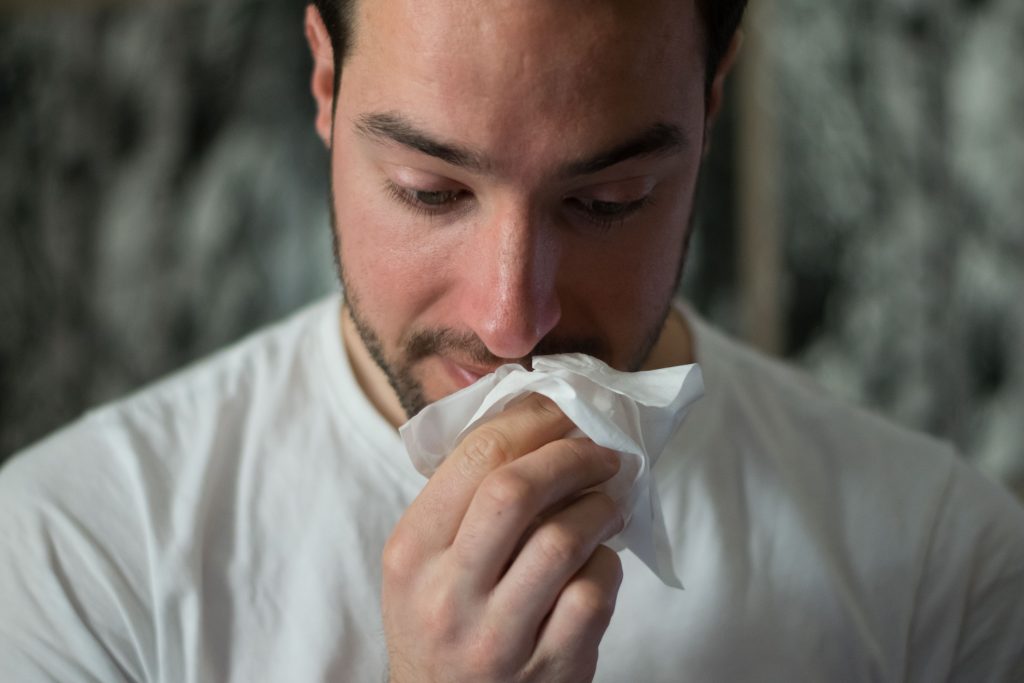Generally, people try and treat colds and flu once they’re sick, however a UK pharmacist suggests that people could start preparing now to minimise their risk of getting sick in the coming months.
Colds, flus and other respiratory illnesses are more common in colder months. This is because viruses tend to live longer in colder temperatures and lower humidity. The cold weather forces people to be in enclosed spaces longer – increasing the risk of infection.
Abbas Kanani, superintendent pharmacist of Chemist Click says that people should consider avoiding large crowds and busy places, ahead of a drop in temperature.
The risk of catching or passing on respiratory infection is higher in crowded and enclosed spaces, where there are more people who might be infectious and limited fresh air.
He advises “cold symptoms usually start about 2 or 3 days after you came in contact with the virus, although it could take up to a week so bare this in mind, especially if you have important activities coming up”.
Flu deaths in UK hit a five-year high last winter with hospital admissions across all ages higher than average.
It’s also important to practice good hygiene no matter the time of the year. “Washing your hands is one of the easiest ways to protect yourself and others from illnesses such as flu and emerging strains of coronavirus (COVID-19)”.
He also recommends that people start preparing a cold & flu kit now. “You should include medicines which can help with the most common symptoms such as fever, runny and blocked nose, coughs and sore throats. Try to have handy common over-the-counter medicines such as pain relivers like paracetamol and ibuprofen, cough medicine, nasal sprays, decongestants, thermometer, fluids and tissues”.
Last winter Brits were left in misery when pharmacists struggled to obtain the very basic, common cold and flu medicine, leading to shortages across the country and leaving many people without.
Abbas Kanani has also offered tips on how people can save money this winter when buying medicines.
“You don’t need to go for the most expensive brands, corporate companies will do their own versions. If you look at the cold and flu remedies and then pick up a well-known branded product and compare the ingredients, they’re going to be the same. You don’t need the most expensive ones, most of the cost is down to marketing”.
When it comes to saving money, it’s also important to know what type of cough you may have because this can also reduce the need to overspend on medicines that may not necessarily work for you.
“There are three types of ingredients that can make a real difference, depending on your symptoms. The first is a decongestant, also known as a vasoconstrictor, for if you have a blocked nose, the second is a cough expectorant for mucus coughs and the third is a cough suppressant for dry, tickly coughs”.
Diet is also important in building a strong immune system, which will help you fight off sickness. Green, leafy vegetables are rich in vitamins that help you maintain a balanced diet and support a healthy immune system.
He also suggests that people should, if not already doing so, following a regular exercise routine. Preferably all year round, however this time of year is a good place to start if you want to reduce your risk of getting sick this winter.
“Moderate exercise accelerates the circulation of disease-fighting white blood cells, which helps the body fight the common cold”.
You should also be getting eight hours of sleep each night. Cytokines, which are a type of protein, are released during extended periods of sleep and they help the body fight infection by regulating the immune system.
“People may also want to consider reducing alcohol consumption leading into autumn and winter because increased alcohol consumption over time can increase a person’s exposure to bacterial and viral infections”.
“Most people try to stop the cold once symptoms are present, but this is not possible. Medicines offer symptomatic relief, therefore the best things you can do is stay hydrated, eat well, keep active, practice good hygiene and have medicines handy if you do become unwell”.
Featured Photo by Brittany Colette on Unsplash


